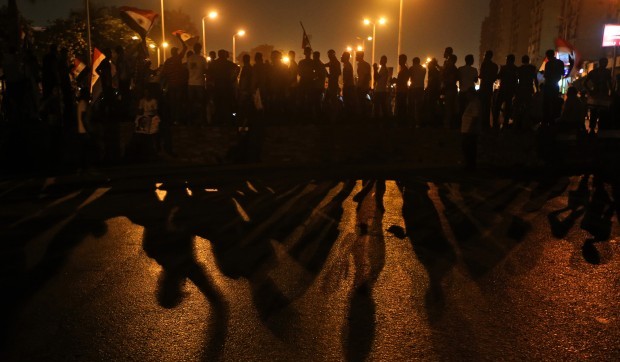If you were to look for a common denominator between all the crises that the Arab world is currently witnessing, you would find it in the phenomenon of religious slogans. Different parties, movements, and organizations that are fighting—from Libya and the Sahara in the West to Iraq in the East, and passing through Egypt, Syria, and Lebanon—all use religious slogans, claiming to be the “true” representative and defender of religion against their enemies.
Shi’ites, Sunnis and even Christians are raising the banners of religion in a truly demeaning and harmful manner. The problem is that these slogans are not interpreted into practical and pragmatic results on the ground. Human beings, after all, are concerned about the search for their daily bread, not to mention fuel and electricity; such things cannot be politicized. Amid this ruthless exploitation of religious feelings in the political arena, the danger lies in religion itself, particularly as those who oppose this will have no choice but to hold those who promote such false slogans to account.
In fact, religion is one’s profound identity, memory, culture and belief, not to mention a potential catalyst—and antidote—for atrocities. In brief, religion is the essence of identity, particularly in the Middle East. Therefore, religion is above political beliefs and ideology, or at least that is how it should be. Many scholars and jurists take this view and dread religion being used in politics, particularly as the failure of these politicized religious parties could be seen as a failure of the religion itself, at least in the eyes of their enemies.
Traditional religious scholars do not feel comfortable about such parties, such as the Muslim Brotherhood, either in the past or the present. Traditional religious scholars have fiercely criticized Muslim Brotherhood founder Hassan Al-Banna, and later controversial Brotherhood ideologue Sayyed Qutb. Such criticisms persisted until recently, shortly before the eruption of the Arab Spring. There are also examples of criticisms against Hassan Al-Banna leveled by Salafist sheikh Nasiruddin Al-Albani in Syria, and more explicitly in Saudi Arabia by mufti Abdul-Aziz Bin Baz and jurist Muhammad Ibn Al-Uthaymeen.
Thus, Saudi Arabia has strongly “sensed” that such groups are doing great harm by abusing religion. This was clear to see in the public address made by Custodian of the Two Holy Mosques, King Abdullah Bin Abdulaziz, as well as Crown Prince Salman Bin Abdulaziz, welcoming the start of the holy month of Ramadan. This address read: “The Kingdom of Saudi Arabia . . . will not allow religion to be exploited by extremists who only work for their personal interests, and who harm the reputation of Islam.” The statement added, “We will not accept anyone in our country, and in any circumstances, to join political parties which have nothing to do with God, and which only lead to conflict and failure.”
The message is clear, not only to political groups abroad that promote religious slogans, but also to the people within Saudi Arabia as well.
The message is simple: We will not accept this.

Trackbacks/Pingbacks